Age for early retirement: defining what the early retirement age is, and pinpointing the ideal age for retirement. This post may contain affiliate links.
People often dream of retiring early because they want to escape their jobs.
In their mind’s eye, they can see themselves retiring to lay around on the beach for the rest of their lives. They can picture a cold drink in their hands and a worry-free life.
But in reality, what most people really want is more fulfilling work. If you don’t believe me, just look at all the people that retire in their thirties or earlier—they go on to write books, start blogs, or begin new careers.
Simply put, relaxing 24/7 is not as fulfilling as it may seem.
Hence why I believe it’s better to pursue financial independence rather than early retirement.
Once financial independence is achieved, one is free to pursue more fulfilling work regardless of how much income the work generates.
Of course, I do believe that there is an ideal age for early retirement.
To put it bluntly, at a certain age, people start to slow down and their most productive years are behind them.
In this article, I aim to pinpoint the ideal age for early retirement and define what the early retirement age is.
Let’s dive in.
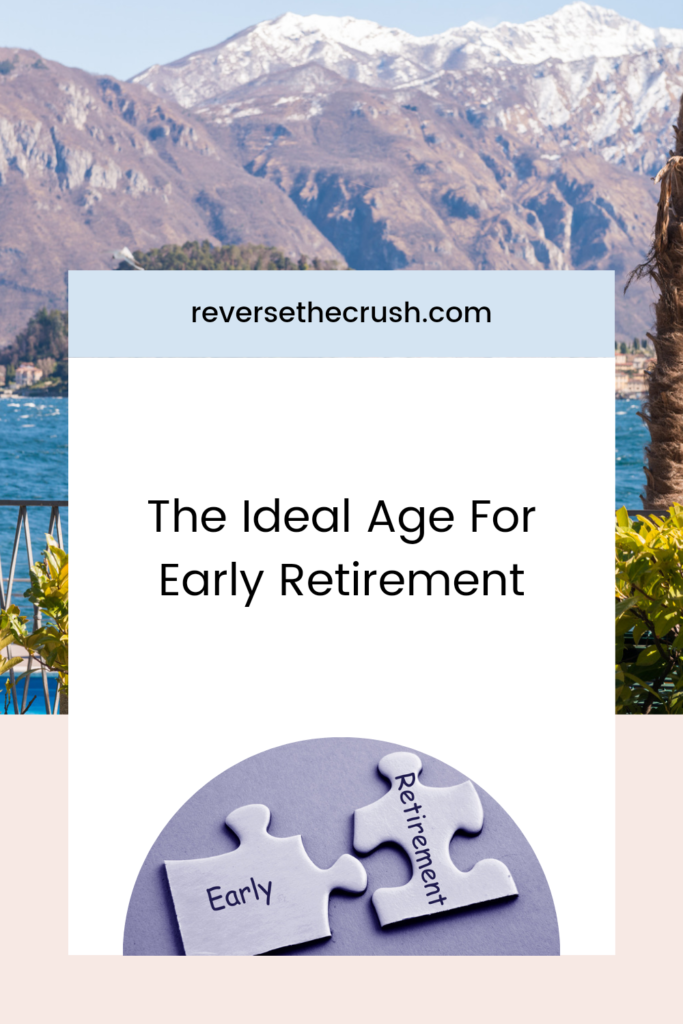
Age For Early Retirement: What Age Is Early Retirement?
The easiest way to define the early retirement age is to look at what the government defines retirement as.
Based on the country and city I live in, Toronto, Canada, the Canada Pension Plan (CPP) is available to residents at the age of 65. Of course, a person may be eligible for CPP at age 60. But since the government views receiving benefits at age 60 as early retirement benefits, the benefits may be paid at a reduced rate compared to the amount that would be paid to an individual at age 65.
Therefore, based on the government’s assertion, early retirement is retiring at any age before 65.
If you retire before 65, you will need to be able to support yourself financially.
What Is The Ideal Age For Early Retirement?
Now that we have defined early retirement as retiring before the age of 65, let’s look at the ideal age for early retirement.
In my personal opinion, the ideal age for early retirement is 55 years old.
In short, 55 is the ideal age for retirement because it is still young enough to do anything you want. At the same time, it is just before people begin to slow down.
Of course, there are are exceptions. I realize that many CEOs and successful people have careers well beyond 65. For example, Warren Buffett is still working at age 90. But realistically, he is relying on wisdom and experience, and he has people under him to do most of the hard work.
I personally believe that the prime of a person’s career is between 30 to 55. During those years, a person is at peak mental capacity, relevant in the current era, and experienced enough to do their best work.
After 55, staying healthy and at peak mental capacity requires more effort. People begin to have less energy. It becomes harder to stay current with technology, regardless of how savvy you are.
As such, I believe the ideal age for early retirement is 55 years old.
Furthermore, 55 is still young enough to travel or pursue more fulfilling work. In most cases, 55 is still young enough to have good health. So, it’s the perfect time for early retirees to pursue what they have always dreamed of before they slow down.
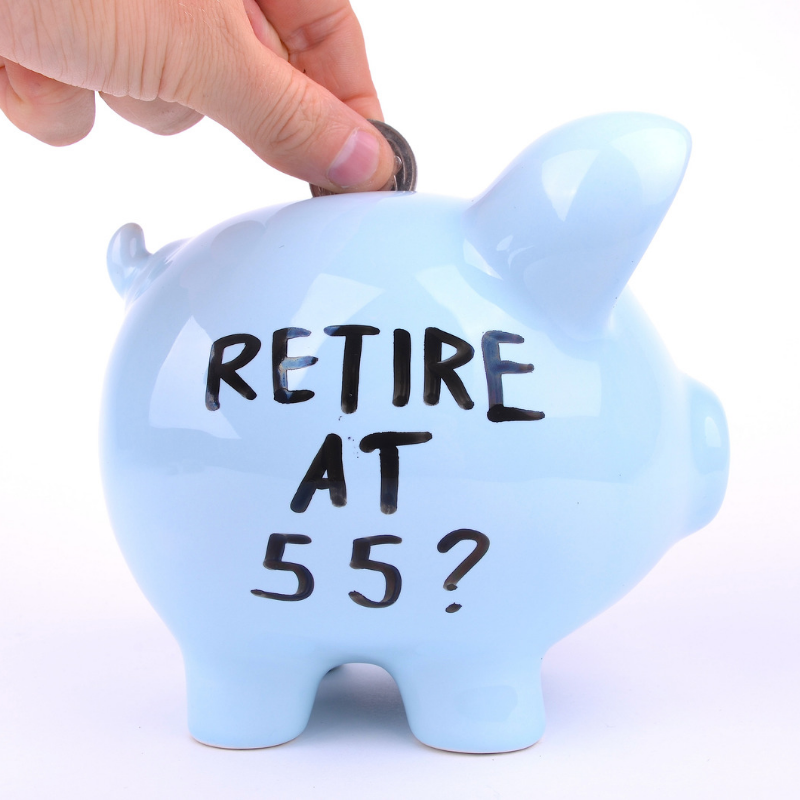
Why Not Retire Earlier Than 55?
A lot of people in the financial independence community talk about retiring between 30 to 40 years old.
But here’s the thing—doing nothing is not fun in the peak years of your life. Even people that retire early don’t stop working. They write books, start businesses, blog, and travel. Have you ever wondered why that is?
Retiring early seems like a good idea when you are a teenager or even in your twenties, because you’re drinking and hanging out with friends all the time.
But once you are in the peak years of your life, from 25 to 55, you won’t want to do nothing.
You will have years of experiences under your belt, your world view will be developing, you will begin to grasp your own mortality, and you will be at the peak of your mental capabilities. In turn, you will want to challenge yourself to do something meaningful with your life.
Ultimately, this is why I think pursuing financial independence makes more sense than pursuing early retirement.
Instead of saving up 25 times of your expenses to do nothing for the rest of your life, financial independence can be used to do the best work of your life.
Financial independence will let you dictate when you work, what work you do, who you work with, and where you work. It will free you from a soul-crushing job.
Ideally, people should pursue financial independence by 30 to 35 to do fulfilling work, and they should aim for early retirement at age 50 to 55.
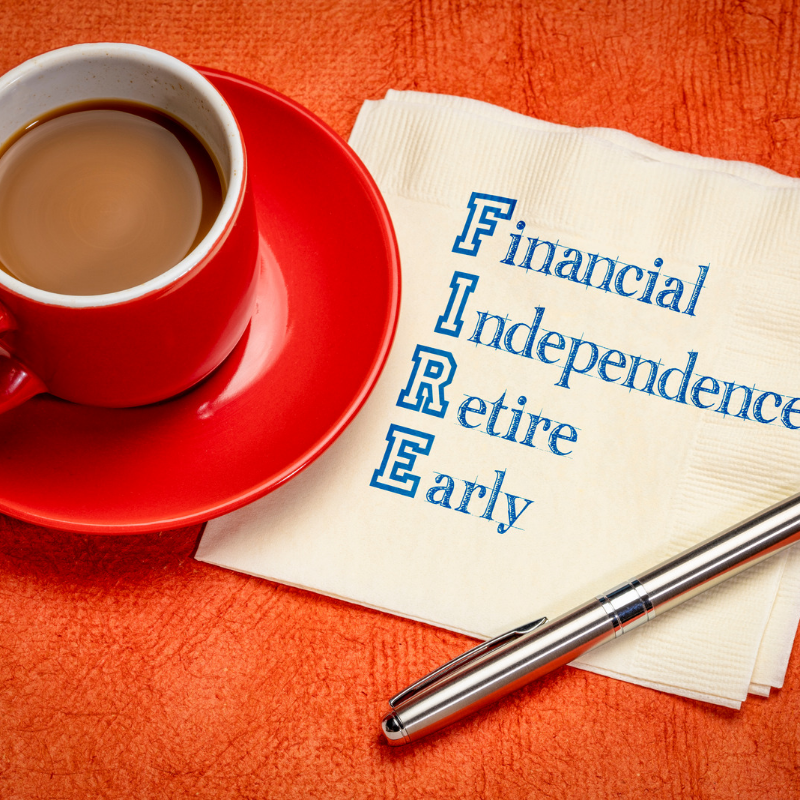
Age For Early Retirement – Final Thoughts
In summary, the early retirement age is defined as retiring before 65 years old.
If you retire before the age of 65, you are technically an early retiree.
However, the ideal age to retire early is actually 55 years old. At 55, you are past the peak of your career, but still young enough to do anything you wish to do.
Moreover, the peak of a person’s career is between 30 to 55, so retiring before 55 to do nothing will not be fulfilling.
The best trajectory to aim for is financial independence by 30 to 35, so you can pursue work that you love. After you have a fulfilling career in your peak years, you will be able to comfortably retire early at 55 years old.
Related Posts on Financial Independence and Early Retirement
Disadvantages Of Early Retirement: Why Early Retirement Is A Bad Idea And What To Pursue Instead
How To Live An Early Retired Lifestyle In 5 Years (Without Retiring)
Things To Do When Retired And Bored
I am not a licensed investment or tax adviser. All opinions are my own. This post may contain advertisements by Monumetric and Google Adsense. This post may also contains internal links, affiliate links to BizBudding, Amazon, Bluehost, and Questrade, links to trusted external sites, and links to RTC social media accounts.
Connect with RTC
Twitter: @Reversethecrush
Pinterest: @reversethecrushblog
Instagram: @reversethecrush_
Facebook: @reversethecrushblog
Email: graham@reversethecrush.com
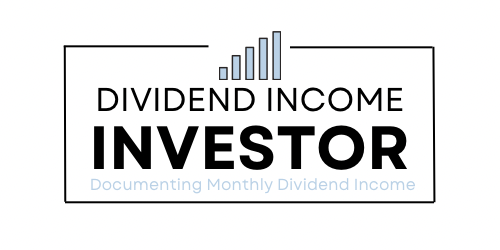
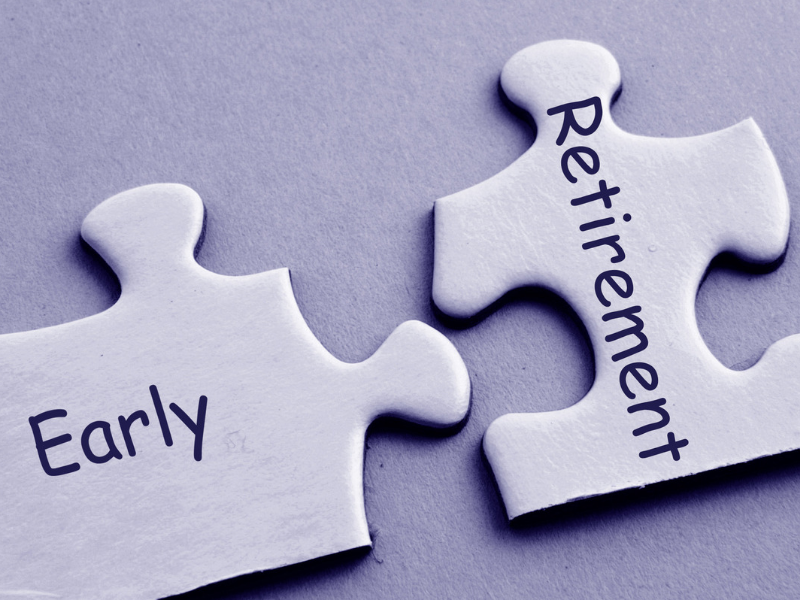
 Blog Income Report June 2021: $60.69
Blog Income Report June 2021: $60.69
